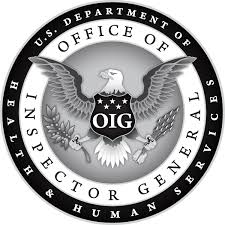Tracking Medicaid Fraud: HHS OIG Releases MFCU Annual Report

The HHS OIG recently released the Medicaid Fraud Control Units (MFCUs) Fiscal Year 2019 Annual Report, providing a consolidated accounting of the program’s success.
MFCUs investigate and prosecute Medicaid fraud and patient abuse or neglect. MFCUs receive referrals from other agencies, the public, or via data mining with OIG approval. The referral is reviewed, an investigation is conducted, and the decision is then made whether to proceed with civil or criminal action. When pursued, these actions can result in criminal prosecution or civil settlements, and can result in an individual or entity being barred from participation in any federally funded health care program.
The OIG analyzed results submitted by 52 MFCUs, which reported a combined
-
-
- 1,527 convictions (1,111 for fraud; 416 for patient abuse or neglect),
- 1,235 individuals or entities excluded from federally funded health programs,
- 658 civil settlements and judgments, and
- $1.9 billion recovered, with a ROI of $6.41 for every $1 spent.
-
The rate of criminal convictions has remained steady over the past 5 years. There was, however, a significant increase in exclusions from federal health care programs, from 974 in 2018 to 1,235 in 2019. Violations by personal care services attendants and agencies accounted for the highest rate of fraud convictions. Nurses and nurse aides had the highest rate of convictions for patient abuse or neglect among provider types. Convictions from drug diversion cases—i.e., fraudulent billing of Medicaid for drugs diverted from legal and medically necessary uses—continued to increase in FY 2019.
Criminal recoveries, civil settlements, and judgments declined in 2019, with $305 million recovered for criminal matters, and there were only 658 civil settlements and judgments, which was the lowest reported amount over the last 5 years. Civil recoveries, however, were three times more than in 2018, at $1.6 billion, up from $545 million.
As stated in the Report, “It is a top OIG priority to strengthen the effectiveness of MFCUs as key partners in combating fraud and abuse. As part of its oversight, OIG strives to support the MFCUs in ways that maximize their effectiveness.” Contributing to the success of the MFCU program is the OIG’s identification and recognition of beneficial practices put in place by local Units. These are published in the Report, which enables evaluation by local Units of other Units’ implemented procedures, to gauge the procedures’ applicability and usefulness in their own programs. Appendix B of the Report details a selection of 24 states’ processes, broken out first by State, and then by Practice Category. Links to all related reports can be found here.
READ MORE:
- Healthcare Fraud
- Government Healthcare Programs
- Medical Billing Fraud
- Medically Unnecessary Services
Tagged in: Criminal Proceedings, Government Programs Fraud, Healthcare Fraud, Lack of Medical Necessity, Medicaid, Medical Billing Fraud,